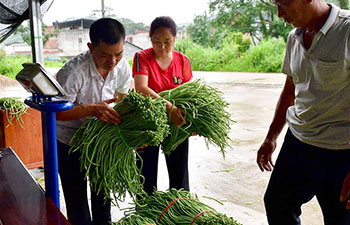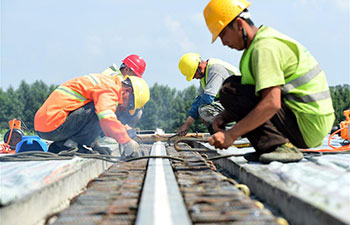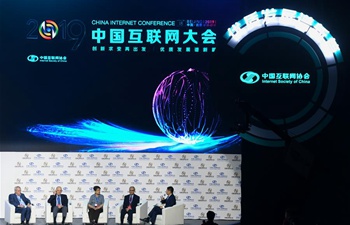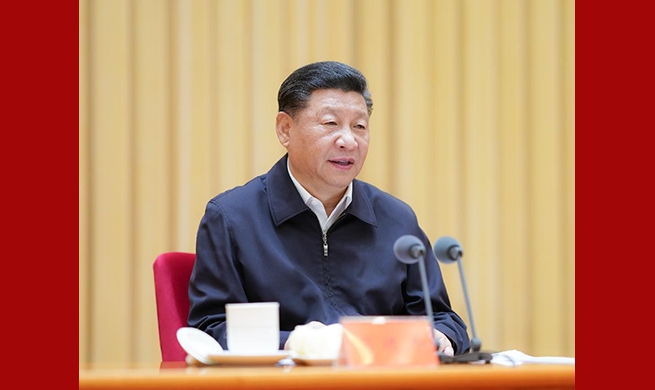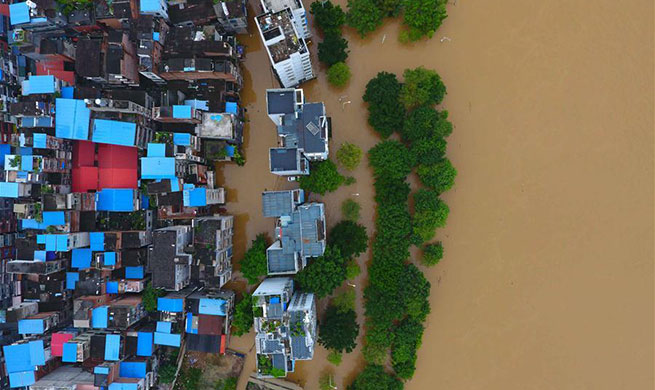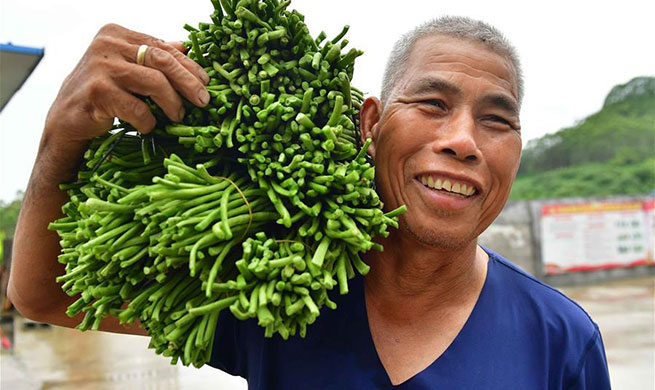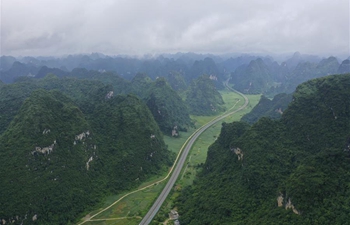By Eric J. Lyman
ROME, July 10 (Xinhua) -- The newly-formed African Continental Free Trade Area (AfCFTA) puts the world's second largest and second most populous continent on the cusp of an ambitious new phase in its history, said Italian analysts, adding that it will require foreign investment and support in order for it to be successful.
The free-trade area was officially created on Sunday, when Nigerian President Muhammadu Buhari and Benin's President Patrice Talon signed the agreement that will create what will become the world's largest free trade area in terms of area, population, and the number of countries involved.
When it goes into effect a year from now it will include 54 countries with a combined population of more than 1.2 billion. The countries' combined gross domestic product (GDP) will be more than 3 trillion U.S. dollars.
According to Agostino Giovagnoli, the author of multiple books on history and globalization, the deal puts Africa in a situation parallel to the creation of a bloc that became the European Union more than 60 years ago.
"The European model is an important parallel since the European Union and the African Continental Free Trade Area are both designed to be supra-national groups of sovereign nation-states," Giovagnoli told Xinhua.
While European nations were in relative terms more economically developed when the six-nation European Coal and Steel Community (the predecessor to the European Union) was established in 1957, Giovagnoli said, the difference was not as stark as it may appear.
"Remember that Europe had just been ravaged by World War II," Giovagnoli said. "Italy was not a wealthy country in 1957. But by tying their fates to each other, Europe was able to grow quickly. The hope is that the same will happen in Africa."
That is the ambition of the African pact: The agreement between member states requires countries to remove tariffs from 90 percent of all goods and services traded with other member states. The United Nations Economic Commission for Africa estimated it will boost trade between African nations by 52 percent by the end of 2022.
Umberto Cucchi, a policy analyst focusing on sustainable development policies and international economics for Competere, a think tank, said that major world economies like the European Union, China, and the United States, will have to continue or increase investments for the African Continental Free Trade Area to gain the momentum it needs.
"This agreement is a strong starting point for Africa," Cucchi said in an interview. "But the bloc needs outside investment in order to thrive. The difference now will be that benefits will be more easily shared."
Giovagnoli noted, however, it was important that the investments do more than making a profit for the companies and countries behind them.
"What the African Continental Free Trade Area will need are those that invest in communities and create jobs," he said.
The AfCFTA will be coordinated by a secretariat and governed by the Assembly of the African Union Heads of State and Government. It will also include a body to resolve trade disputes and special committees on trade in goods, trade in services, rules of origin, non-tariff barriers, technical barriers, and health issues.
